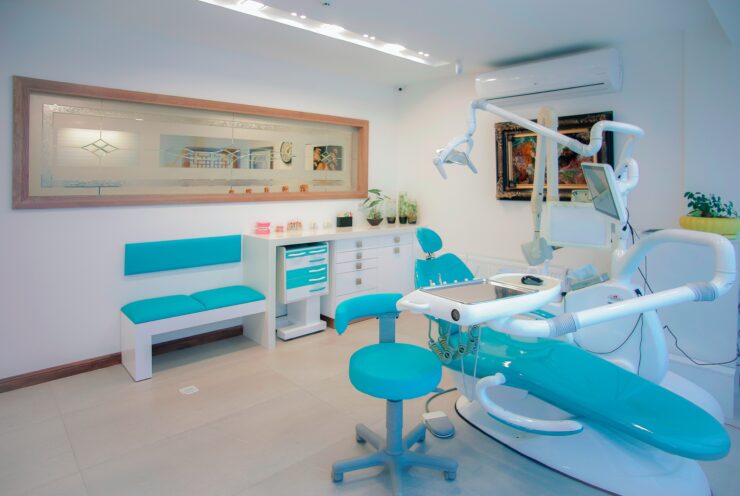Dental anxiety is a widespread challenge that affects countless individuals, often leading to avoidance of much-needed dental care. The fear of dental procedures can have detrimental effects on oral health, causing minor issues to escalate into major problems. However, the good news is that there are numerous strategies and techniques to cope with dental anxiety effectively. In this in-depth manual, we will delve into ten potent approaches to assist individuals in approaching their dental appointments with assurance and comfort. From selecting the right dentist to employing relaxation techniques and positive visualization, these approaches can transform daunting dental visits into manageable and even positive experiences. By addressing dental anxiety head-on, individuals can prioritize their oral health without the burden of fear.
Choose The Right Dentist
Selecting the right dentist is a pivotal step in effectively managing dental anxiety. Look for a dentist with specialized experience in treating anxious patients or those with dental phobias. Feedback from online reviews and personal endorsements from friends and family can be valuable in pinpointing a dentist recognized for their tender and empathetic manner. Finding a dentist who understands your anxiety sets a positive tone for your dental journey, as they prioritize your comfort and well-being.
Open Communication
Open and effective communication with your dentist is essential for navigating dental anxiety. Share your fears and concerns openly; a good dentist will listen attentively, answer your questions, and address your worries with empathy. They will work alongside you to create a tailored treatment plan that prioritizes your comfort, building trust and minimizing anxiety.
Start With A Consultation
If dental anxiety is overwhelming, consider scheduling an initial consultation with your dentist before any treatment. This allows you to become familiar with the dental team, explore the office environment, and discuss your concerns without the pressure of immediate treatment. A consultation serves as a gentle introduction to the dental setting, gradually easing anxiety.
Relaxation Techniques
Prioritize relaxation techniques both before and during your dental appointment to alleviate anxiety. Engage in practices such as deep breathing exercises, meditation, or listening to soothing music. Many dental offices offer amenities like calming music or noise-canceling headphones to enhance your sense of ease and comfort.
Arrange A Signal
Establishing a clear signal with your dentist is crucial for maintaining control during your dental visit. Knowing you can communicate when you need a break or feel uncomfortable significantly reduces anxiety. Work with your dentist to develop a signal, such as raising your hand or tapping a small object. This signal indicates to the dental team that you require a pause in the procedure, ensuring you have control over the pace of treatment and helping alleviate anxiety.
Sedation Dentistry
Sedation dentistry offers valuable options for individuals dealing with severe dental anxiety. Various levels of sedation, from minimal to deep, are available to cater to different comfort levels and treatment needs. Minimal sedation, often administered through nitrous oxide (laughing gas) or oral sedatives, can induce relaxation and ease anxiety. This method enables you to stay awake and alert throughout the procedure, reducing any discomfort. For individuals with profound anxiety, options like intravenous (IV) sedation or general anesthesia are available. These approaches induce a deeper level of sedation, and you may have no recollection of the dental procedure while under their effects. Discuss these sedation options with your dentist to determine which one aligns best with your specific needs and comfort level.
Bring A Supportive Companion
Having a reliable friend or family member accompany you to your dental appointment can offer invaluable emotional support. Their presence can help alleviate anxiety and provide a sense of security during the visit. Your companion can hold your hand, offer comforting words, and help you remain calm throughout the procedure. Knowing that you have someone you trust by your side can make the entire experience feel less daunting.
Distraction Techniques
Dental offices often provide distraction techniques to help patients manage anxiety during their visits. These techniques are designed to divert your attention from the dental procedure and redirect your focus to more enjoyable thoughts or experiences. One common distraction technique is the availability of a TV in the treatment room. You have the option to enjoy your favorite shows or movies during the procedure, offering a pleasant distraction. Some dental offices even offer virtual reality (VR) headsets that immerse you in a different environment, effectively transporting you away from the dental chair.
Positive Visualization
Positive visualization is a powerful tool to reduce dental anxiety. Before your dental appointment, spend time imagining a positive, calm dental experience. Visualize yourself sitting comfortably in the dental chair, feeling relaxed, and envision the procedure going smoothly. This mental rehearsal can replace negative thoughts and fears with a sense of confidence and assurance.
Post-Appointment Reward
Planning a reward for yourself after your dental appointment is an excellent way to motivate and comfort yourself. Knowing that there’s something enjoyable waiting for you at the end of your visit can make the entire experience feel more manageable and less intimidating. Consider what would bring you joy and relaxation after your dental appointment. It could be something as simple as indulging in your favorite meal, treating yourself to a spa day, or watching a movie you’ve been looking forward to. By having a post-appointment reward to look forward to, you can create a positive association with your dental visit. This positive reinforcement can help diminish the anxiety you feel leading up to future appointments, as your mind will focus on the positive outcome awaiting you afterward.




